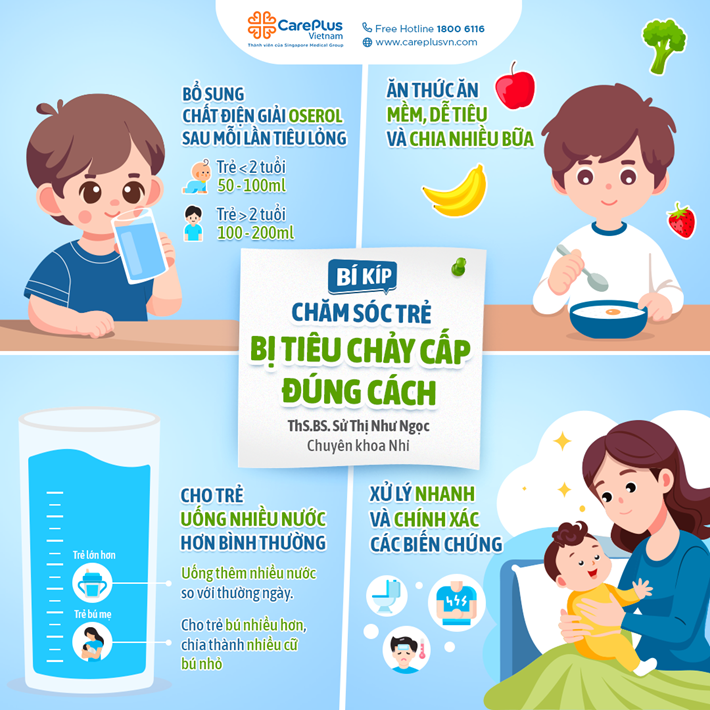THE BACK-TO-SCHOOL DIARRHEA STRIKES: WHAT SHOULD MOMS DO?
After an exciting summer, the little ones are thrilled to return to school. However, with the sudden change in weather and adjusting to new routines, their immune systems can weaken, making them more prone to illnesses. One of the most common ailments is diarrhea, caused by viruses or bacteria. But don’t worry, moms! Handling diarrhea the right way can help reduce its impact on your child's health. Let’s make sure you’re well-prepared!

9/24/2024 1:42:21 PM
What is Diarrhea?
- Diarrhea: When your child passes loose or watery stools three or more times within 24 hours.
- Acute Diarrhea: Sudden onset, lasting less than 14 days.
- Chronic Diarrhea: Lasts more than 14 days.
Why Does Diarrhea Happen?
In children, diarrhea can be caused by various factors, and these are divided into two main categories:
- Infections: Such as viruses (Rotavirus, Norovirus), bacteria (Salmonella, E. coli), or parasites (Giardia).
- Non-Infectious Causes: Including medication side effects, food allergies, or food poisoning.
How to Care for a Child with Diarrhea at Home
1. Hydration is key: Start with oral rehydration solutions (ORS) to replace lost fluids. For children under 2, give 50-100ml after each loose stool; for older children, 100-200ml.
2. Keep breastfeeding: If your child is still breastfeeding, offer more frequent feeds to ensure proper hydration.
3. Don't stop feeding: Continue offering food but opt for lighter, easy-to-digest meals. Avoid sugary, greasy, or hard foods.
4. Skip sugary drinks: Avoid fruit juices, soft drinks, and sodas. Instead, offer plain water, rice porridge water, broth, or coconut water.
Should Antibiotics Be Used?
In cases where diarrhea is suspected to be caused by bacteria (such as when there's a high fever or bloody stools), take your child to the doctor for proper treatment. Never use leftover medications or old prescriptions.
When to See a doctor?
Usually, diarrhea lasts a few days and can be managed at home. However, take your child to the hospital if you notice:
- Extreme tiredness or fussiness
- Frequent, very watery stools
- Blood in the stool
- Persistent vomiting
- Unquenchable thirst or poor appetite
- High fever that doesn’t go down with medication
- Other concerning symptoms like breathing difficulty, excessive sweating, cold limbs, or if your child is under 6 months.
To prevent diarrhea, especially during seasonal transitions, teach your child to wash their hands regularly with soap, especially before eating and after using the restroom. Also, ensure your child is up to date with their vaccines. 💉
With proper care, you can help keep your child healthy and thriving!